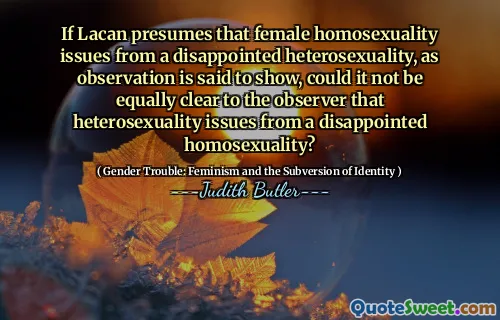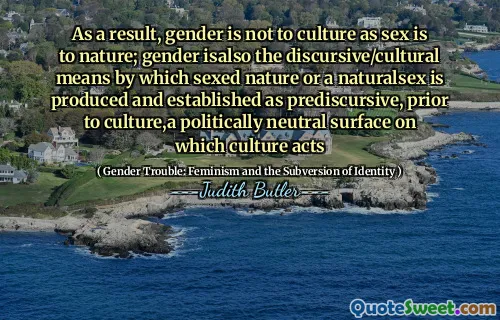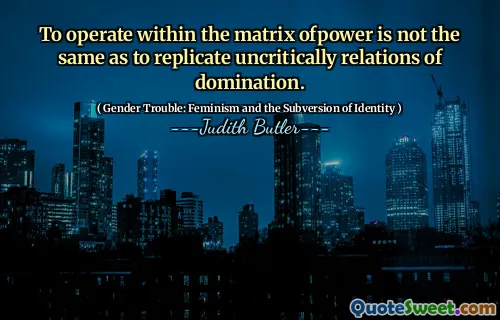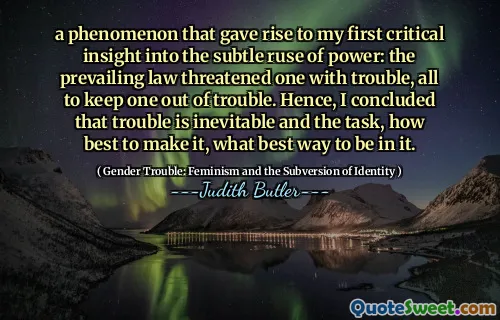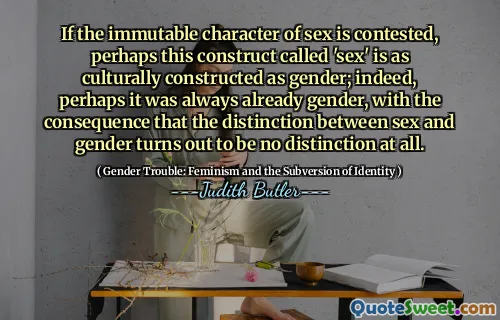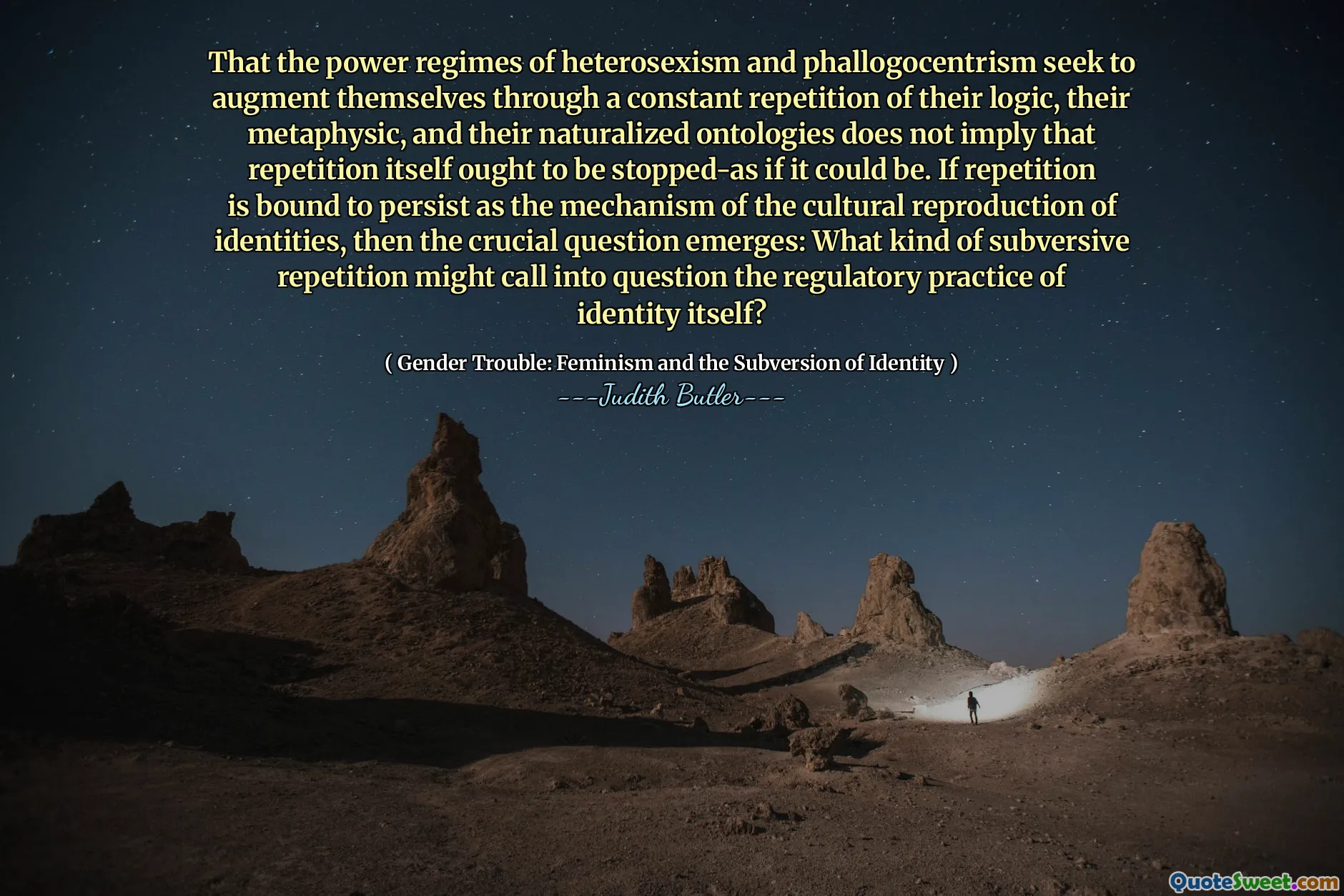
That the power regimes of heterosexism and phallogocentrism seek to augment themselves through a constant repetition of their logic, their metaphysic, and their naturalized ontologies does not imply that repetition itself ought to be stopped-as if it could be. If repetition is bound to persist as the mechanism of the cultural reproduction of identities, then the crucial question emerges: What kind of subversive repetition might call into question the regulatory practice of identity itself?
Judith Butler's "Gender Trouble" discusses the dynamics of power structures such as heterosexism and phallogocentrism, which reinforce their dominance through repetitive cultural practices and established beliefs about identity. This repetition perpetuates specific ways of understanding and performing identity that make them seem natural and inevitable, thereby strengthening these power regimes. However, Butler argues that rather than attempting to eliminate repetition, it is essential to explore how different forms of repetition can challenge and destabilize these norms.
The fundamental question that arises is what types of subversive repetition can question the very mechanisms that regulate identities. By examining and engaging in alternative forms of repetition, individuals might disrupt the normative frameworks and open up new possibilities for identity expression. Butler's exploration suggests that through creative and critical engagement with repetition, it is possible to reimagine identity beyond traditional constraints, leading to feminist and queer transformations in understanding gender and identity.
